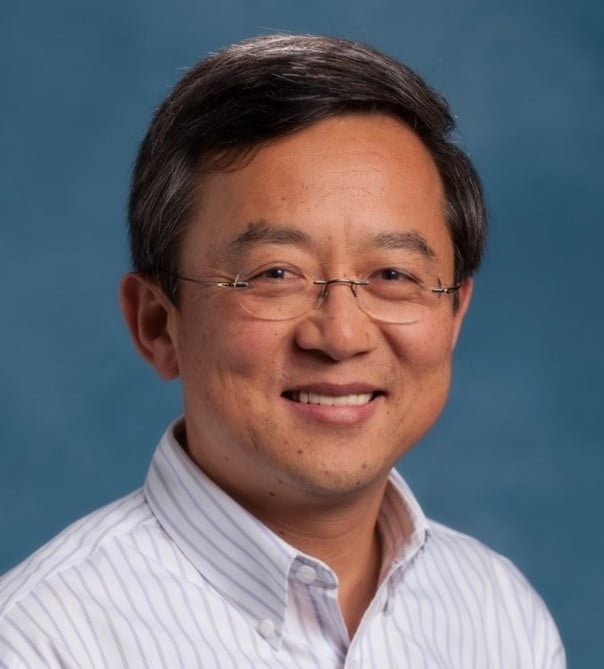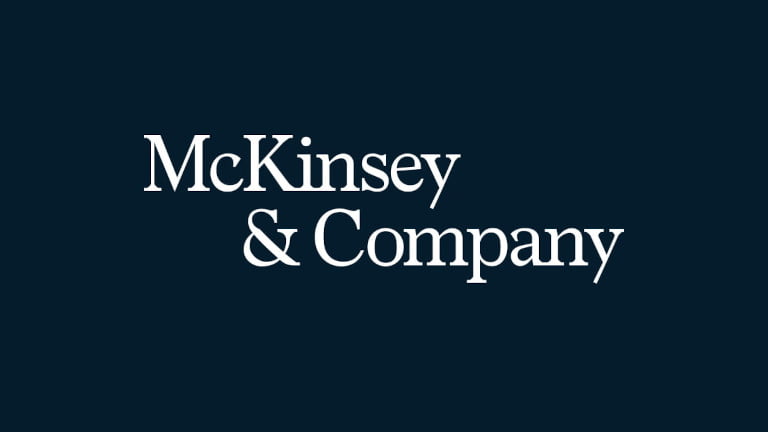A Tale of Two Football Teams
I have been watching the Sunday shows ‘Meet the Press’ on NBC and ‘This Week’ on ABC for the past ten years or longer, primarily for entertainment. It is quite amusing as well as concerning to observe how science is being used by our political parties to position themselves on the ‘right’ side of history.
When former president Trump was in office, Democrats used to criticize him for not respecting and following science in his handling of the Covid-19 pandemic. There was no question that the US Covid deaths would have been a lot lower had President Trump followed the advice of his scientific advisers instead of acting out of his own impulses. On Sunday Feb 21, 2021 in front of national television, it was the Republicans who are now championing science to guide our nation’s policy of reopening schools. The Democrats, including the Biden administration, are using reopening schools as a key argument to pass the $1.9 trillion relief bill. The Republicans are quoting scientific data which shows that opening schools do not require massive additional funding. The country cannot and should not wait for the bill to reopen schools anyway.
So are we a nation of football science or scientific football? Whoever is in power seems to forget science and, as a saving grace, the losing side seems to occasionally stand up for it.
Some people might feel cynical about our predicament and give up (the philosopher Friedrich Nietzsche was one of them, after a long, thoughtful and painful struggle). For those of us who are still in the struggle, it is crucial to ask ourselves what has led us into this predicament? If you ask this question of a hundred people, you are likely to get a hundred different answers. Some might even stare back at you as though you were from another planet.
The majority of people live by football science, that is, they have some hunches of what they want but do not feel in control of it at all and, if they are well adjusted, are quite happy go lucky. They have neither the interest nor the energy to take life seriously and apply rigorous scientific principles to scrutinize, understand and change how they live. There are some good reasons behind their pragmatic stand. Science continues to evolve and proves itself wrong, in time.
What were considered iron-clad scientific facts a hundred years ago are not necessarily accepted as truth today. For example, we no longer believe that light consisted of tiny capsules as Newton thought but possesses both capsule-like and wave-like properties. We no longer believe in a genetic explanation of race differences. In fact, genetic variations within a race is no more or less than between races. We used to think that the ‘Big Bang’ was slowing down but it turned out that the physical universe is flying apart faster and faster! If someone is looking for a non-changing ‘truth’ to hold on, science is not it. The reactions from team ‘football science’ are predictable: science is no different from the guessing game of football, therefore football science is as good as it gets …
The other team, certainly in the minority, acknowledges the limitations and evolving nature of science but still believes that we are better off with than without it. Covid-19 is a case in point. Despite the appalling human suffering, the damages caused by Covid-19 were still mild compared to those of other pandemics in human history.
For example, the Black Death pandemic in the mid-1300s killed over 20 million people in Europe alone. There is no question that Covid-19 would have been much deadlier if it were not for the vastly superior scientific knowledge and response infrastructure now possessed by humanity compared to the time of Black Death.
Science is not just another sport game. It can yield major benefits for the human race. But then why only the losing side of our political establishment remember it if at all? The most convincing answer that I am aware of was provided by the renowned physicist, Carl Sagan, and his wife, Ann Druyan, in their book Shadows of Forgotten Ancestors. Their explanation is credible since it connects us with our human roots and provides a potential pathway out of our current predicament.
There is no question that life resembles much more a messy football match than a neat scientific theory. However, if we desire to untangle the messiness of and play better football, we have no better alternative than starting with an overly simplistic but scientific theory and improving it over time. Anything else would leave us permanently stuck in the heat of the moment. I call this alternative game ‘scientific football’ in contrast to the majority choice of ‘football science’.
Humanity has made enormous improvements to the game of ‘scientific football’ over the past a few centuries, including in recent decades. As mentioned above, superior pandemic response and prevention is one example. Even closer to home, our workplaces have improved greatly as well. The working conditions for the vast majority of workers in America today is far superior than those experienced by our predecessors merely a few generations ago.
As proof, the average life expectancy in the US has more than doubled since the late 1800s and increased by almost 20 years since 1960 (the year of my birth). Our genetics have hardly changed in such a short span of evolution time. The benefits have resulted primarily from improved healthcare and working conditions. Our ancestors used to exhaust themselves searching for food and building shelter, quite literally.
These improvements would not have been achieved if we just played ‘football science’ instead of ‘scientific football’. So the question we need to ask ourselves is this: what can each of us do to get back to the game of ‘scientific football’, away from the ‘football science’ that is clogging our political systems and cultures today?
Well, one thing we could do is try to spend less time on social media and more time on understanding and improving the working conditions through Experiment in Democracy at our workplaces.
There is a loud outcry today that our workplaces are grossly unjust and discriminations are rampant. There is some truth in such criticisms. Ethnic minorities are still under-represented at all levels of management, especially towards the top. However, people also seem to ignore the enormous progress that has been made and continue to be made.
My son is applying to college this fall. He was interviewed recently by a Yale graduate of class 1955. The 90 year old alumni graduated in an all-male and all-white class. On that Saturday morning, he spent over an hour sharing his experiences with an Asian American kid. That sounds progress to me. Acknowledging both progress made and injustices remaining is a necessary human condition for us to focus our psychological energy on enlarging justice through science vs going down the destructive path of blame games.
Science works not because it was perfect but it has been effective despite its imperfections. The essence of science is not mere collections of ‘‘facts’ but its methodical approach to problem solving: (1) Posing hypotheses about a meaningful problem, the root causes and cause-effect relationships; (2) Prove or disprove such hypotheses through applications to the problem. Chances are that most of the initial hypotheses are too crude or flatly wrong and need to be revised or discarded. However, we must not stop making hypotheses or science would die and other and less productive human processes would take over (heard of QAnon theory lately?). If we focus on this iterative approach to scientific problem solving, history has proven repeatedly that meaningful progress can and have been made.
Today, despite widespread misinformation and pessimism, team ‘scientific football’ is performing better than never before. The workplace has become more and more a major stage for ‘scientific football’, competing side by side with still dominating but slowly fading ‘football science’. Perhaps unsurprisingly, the star players on team ‘scientific football’ have been scientists/consultants who have one foot in science and another in the real world of business. They invent theories and tools based on careful observations and interactions with their clients and then test and improve their tools by applying them to solve their clients’ problems.
I will briefly mention the work of two such scientists/consultants below.
The late Harvard professor, Chris Argyris, was a giant in actions research and practices. In contrast to the common image of the armchair philosopher, professor Argyris took human behaviors and resulting consequences as the starting point and hypothesized the cognitive and emotional drivers behind the observed behaviors and outcomes. Let’s look at a simple example.
Professor Argyris was hired as a consultant to help a company reduce production costs. Within three months, twelve foremen who were assigned by the company to work with him identified and implemented changes that saved the company $210,000. The senior executives were delighted and ordered a banquet to celebrate. However, professor Argyris was just getting started … You see, professor Argyris did not come up with the cost reduction ideas, the foremen did. He then asked the foremen how long they had had the list of ideas.
They replied that they had had them for a few years. Professor Argyris then asked the crucial question: what prevented you from taking these cost reduction actions without the stimulation from me (the consultant)? The foremen’s reactions are never taught in university classrooms but almost universal in human organizations and societies everywhere: Are you kidding? Are you serious? From observations of this and other seemingly trivial and commonplace human behaviors, professor Argyris developed a theory of human action and tested it in numerous organizations, both large and small.
His major findings are (1) human beings have implicit and unspoken rules and emotions that strongly influence if not dictate their behavior; (2) one of the most common set of such unspoken rules and emotions has been hypothesized, tested and refined into a theoretical model called the unilateral control model of human action. It is almost universal and unconsciously adopted by humans everywhere, as demonstrated by the foremen in the example above; (3) It is possible, though very difficult, for us to adopt a different model of action through conscious education and practice.
The new model, called mutual learning, will lead to higher productivity and more harmonious human relationships; (4) Although the management literature and company HR departments promote the mutual learning model, most organizations are still entrenched in the unilateral control culture. Professor Argyris makes this distinction clear by naming the former ‘espoused theory’ and the latter ‘theory in practice’. It has vast implications for practitioners who aspire to operate under mutual learning but must face the reality of unilateral control on a daily basis. It is perhaps not surprising that many of them choose to play football science (unilateral control) instead of scientific football (mutual learning) out of frustrations and cynicism.
Another Harvard professor appears to have built on and expanded professor Chris Argyris’ work, although there was hardly any reference to each other’s work in their publications (could be due to my own ignorance). So the association made here was mine, not theirs.
Professor Robert Kegan is a developmental psychologist who studies the phenomena of human behavior, cognition and emotions from a developmental perspective, that is, attempts to explain and correlate observed human behavior from various age groups and historical times in terms of hypothesized human developmental stages.
Like professor Chris Argyris, he then tests and improves his theory through actual use cases at various organizations. His 2009 book (coauthored with Lisa Lahey), ‘Immunity to Change’, provided much deeper and richer contexts why the unilateral control model observed by professor Argyris is so entrenched in contemporary as well as historical human cultures. Instead of treating unilateral control as ‘bad’, professor Kegan’s work calls for our compassion, first and foremost, as well as courage to change.
The process of upgrading our cultural operating system from unilateral control to mutual learning resembles the biological process of our body receiving a transplant. The current immune system of our body will fight ferociously such foreign invasions and so will our cultural immune system! The foremen’s reactions in professor Argyris’ example was not malicious at all but programmed by our cultural DNA. To evolve such cultural DNA from unilateral control to mutual learning is not a technical task nor could it be ‘ordered’ by someone from the corner office.
As a matter of fact, it is more than likely that the corner office is part of the existing immune system that is fighting the ‘invader’ just as hard. So what can we do? Professor Kegan’s work highlights both the possibility of playing ‘scientific football’ in this tough field and the risks of doing so too carelessly. The patient could die if we force a transplant onto him/her without adequate preparations and support systems. As a species, we are still at an early stage of making such preparations, developing and implementing necessary tools and support systems. The future looks very bright and exciting. But the journey will be long and arduous.
Our worst enemies are two-folds: either we rush ourselves into performing transplant prematurely or we abandon ‘scientific football’ and revert back to ‘football science’. Both cultural currents are being displayed prominently on national and world stage as we speak. The choices are stark, personal, difficult and consequential. Our fate as a free people are at stake.
About the author:
Dr. Yan Song has had more than two decades of professional and executive experience in the Pharmaceutical and IT industry. He is known as a thought leader and practitioner in applying theories of social complexity and systems thinking to business turnarounds and transformations. His current business focus is to help large organizations develop and implement digital transformation strategies that integrate cultural, data, process and technologies within a minimal and viable architectural framework. Dr. Song received his PhD in physical chemistry from the University of Wales in 1989 and MBA from the University of Chicago in 2001.








